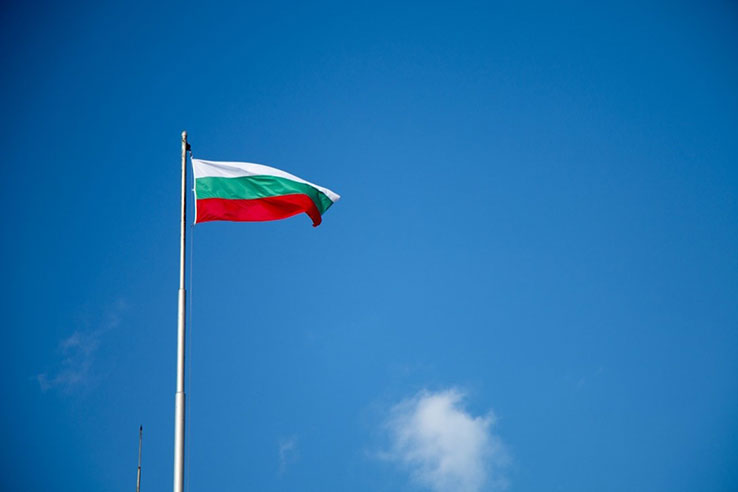Radosveta Vassileva
 In 2007, we were so happy and proud to be finally in that mythological space, this pretentious club for the chosen ones known as the EU. Thirteen years after accession, however, this European dream looks more like a nightmare.
In 2007, we were so happy and proud to be finally in that mythological space, this pretentious club for the chosen ones known as the EU. Thirteen years after accession, however, this European dream looks more like a nightmare.
In the late 1990s and early 2000s, Bulgarians were being sold the same dream the Western Balkans are enticed with today — “the European perspective”. In the mainstream mythology of EU institutions and global leaders, this European dream seems synonymous with democracy, the rule of law, respect for human rights, economic prosperity, bright future for young people, and overall happiness.
In 2005, Bulgaria signed what was deemed to be a “historic” accession treaty. In 2007, we were so happy and proud to be finally in that mythological space, this pretentious club for the chosen ones known as the EU. Thirteen years after accession, however, this European dream looks more like a nightmare. It is in this light that Bulgaria’s grim journey in the EU may teach some lessons to the citizens of the Western Balkans, especially regarding the hypocrisy of politicians and EU institutions, and the need to hold them accountable from an early stage.
Bulgaria’s EU Disaster
In 2020, the most influential media in Brussels, Politico, overtly called Bulgaria a “mafia state”. Indeed, if you follow reputable indices and democracy reports, you may wonder if the country has not joined the wrong Union by mistake.
The Corruption Perceptions Index by Transparency International traditionally ranks Bulgaria as the most corrupt EU member — its last edition has placed Bulgaria 74th in the world together with Jamaica and Tunisia. The Worldwide Governance Indicators by the World Bank do not paint a more flattering picture either — not only in the “control of corruption” category Bulgaria has scores comparable to those of developing countries, but in 2019, the latest measurement, it received a poorer score than in 2009.
The 2020 Rule of Law Index by the World Justice Project has given Bulgaria the worst score in the EU after Hungary — it has been ranked 53rd among the countries examined. For comparison, Kosovo has been ranked 54th. In addition, in the corruption of the executive category of this index, Bulgaria has received the same score as the Russian Federation meaning that a Bulgarian public official is as likely to take a bribe as a Russian one.
The Nations in Transit Report by Freedom House downgraded Bulgaria from a democracy to a semi-consolidated democracy in 2018 — a diagnosis it has preserved in its latest 2020 report. The latest World Press Freedom Index by Reporters Without Borders has ranked Bulgaria 111th in the world — contrast with Macedonia’s 92nd place.
Bulgaria’s economy is in ruins, too. Bulgaria has the lowest GDP per capita in the EU. There is virtually no Foreign Direct Investment (FDI) — data by the World Bank seems to indicate it plummeted after Bulgaria joined the EU. An independent analysis by the Bulgarian Industrial Association over the period 2007-2017 showed that in 2007 FDI was 28% of the country’s GDP while in 2017 — only 2%.
Unsurprisingly, Bulgaria has the lowest median earnings in the EU. Labor unions have estimated that two people earning the median salary cannot support a family of four. Poverty has taken its toll on demography, too. There are more Bulgarians working abroad than in Bulgaria. Mass emigration has left key sectors barren — more than half of the doctors in Bulgaria are above 55 years old. The country has the highest death rate in the world which can be attributed to bad healthcare and poverty.
Believe it or not, there is an actual “happiness survey” by Eurostat — the latest one shows that only 35% of Bulgarians are happy with their lives.
Does the above European perspective sound appealing to you? Let me bust a few more myths then.
Dual Standards as the EU Commission’s Main Principle
Candidate states are traditionally sold myths. The legend of the “accession criteria” certainly needs some unpacking — namely, you would be told that your country will join the Union only after it fulfills the so-called Copenhagen criteria. They are a relatively new phenomenon introduced when former-communist countries applied for EU membership in the fifth wave of enlargement.
In his compelling monograph EU Enlargement and the Failure of Conditionality. Pre-accession Conditionality in the Fields of Democracy and the Rule of Law, Prof. Kochenov contends that in the fifth wave of enlargement “the application of the principle of pre-accession conditionality was marked by resounding failure, if it was applied at all”. In her book European Union Enlargement Conditionality, Eli Gateva also gives examples of purely political decisions to close some chapters in the negotiations with Romania.
 Source: europeanwesternbalkans.com
Source: europeanwesternbalkans.com
If there is any silver lining, it lies in the fact that with Bulgaria and Romania, the EU Commission was more honest — it was worried that they were totally unprepared for membership, so it included unprecedented safeguard clauses in their accession treaty allowing it to delay their accession. Even though they made little progress, the Commission deemed that it could help them catch up with other member states in the area of rule of law via a special mechanism — the Cooperation and Verification Mechanism (CVM) — so accession took place as planned. In this light, one may doubt if the EU has taken any lessons from the latest enlargements when it comes to the talks with the Western Balkans for they seem to use the same templates.
However, the silver lining was short-lived. In my latest academic article “Threats to the Rule of Law: The Pitfalls of the Cooperation and Verification Mechanism”, I have showcased how in Bulgaria not only this mechanism did not resolve any of the country’s longstanding challenges to the rule of law, but also it was used to legitimize assaults against the rule of law as “progress”. The European People’s Party (EPP) of which Boyko Borissov is a member had worked its magic behind the curtain.
Throughout the years, many EU officials, especially Commissioners, backed Borissov’s autocracy with flattering public statements attempting to persuade Bulgarians the emperor was not naked. Borissov’s profiting from under the umbrella of the EPP, the dominant party in the EU, of which he is a member was becoming more and more obvious. Many Bulgarians wondered whether they should trust their own eyes and reports by international organizations or the EU Commission’s PR for Bulgaria’s government. Predictably, the house of cards started falling apart in the summer of 2020 when thousands of Bulgarians started protesting against the rampant corruption of Boyko Borissov and General Prosecutor Ivan Geshev. Equally predictably, the EU Commission remained silent in stark contrast to the EU Parliament which adopted a highly critical resolution on the rule of law decay in Bulgaria.
The Future is in Your Hands
How can the Western Balkans prevent a Bulgarian scenario, then? In a nutshell, they should not repeat Bulgaria’s mistakes. It may be a cliché, but the future is in your hands — neither your politicians nor the EU Commission will look after your best interest unless you force them to.
Firstly, do not buy the “European perspective” dream cheaply! Ask your governments about their vision for the development of your countries. “EU membership” is a rather vague answer. EU membership or not, your leaders owe you concrete answers about what they would do to ensure decent salaries, better working conditions, better healthcare, better education, respect for fundamental rights, etc. Also, know that those parties telling you not to join the EU may change their views overnight if your countries make it — this is what the Bulgarian experience shows.
Secondly, be engaged citizens! Vote at elections — if you don’t like anyone, vote for the lesser evil. If you make a mistake, don’t repeat it. Turnout at Bulgarian elections is traditionally low, which makes it easier to manipulate the results. Follow closely the reforms your governments are implementing and be demanding. Form groups for civil action, so that your criticism is vocal and public. Inform EU institutions of your concerns too, so that they don’t play the cheap “I have not heard of this problem” trick they have played on Bulgaria so many times.
Thirdly, be suspicious of what EU officials are telling you. Fact-check what they say and if you think they’ve got it wrong, complain by sending a letter to the Commissioner responsible for EU Enlargement or the Members of the European Parliament (MEPs) with an interest in enlargement — their contacts are public. In this way, you will be making your criticism and concerns known to them. It is no secret the EU Commission has been dominated by the two largest parties — the EPP and the Socialists — so chances are your governments may benefit from a generous umbrella if they are associated with either of them.
Fourthly, if you make it in, send decent MEPs — people who will serve your interests rather than those of the status quo, people who will make your voice heard. For years, Bulgarians were sending puppets of the status quo as MEPs, so they did not have a voice at the European Parliament at all.
Finally, the Union is not what it used to be. It is entangled in its own problems and suffers from the lack of foresight of its leaders — rule of law decay as evidenced by a series of rule of law crises which have emerged (Hungary, Poland, Bulgaria, Romania, and Malta, to name a few), corruption as evidenced by the necessity to create a European Public Prosecutor’s Office, Brexit, the challenges of climate change, overall economic downfall because of the COVID-19 emergency, etc.
Still, no matter how troubled the Union is, there is not a better option for you out there than the EU. The good news is that many people who are already in want to make it a better place because they also fell for the “European idea”. Are you ready for your fair share of the building work implementing what the EU Treaties actually say?
This blog is published as part of the regional blogging initiative “Tales from the Region”, led by Res Publica and the Institute of Communication Studies, in partnership with Macropolis (Greece), Lupiga (Croatia), Sbunker (Kosovo), Ne Davimo Beograd (Serbia), Analiziraj (Bosnia and Herzegovina), Pcnen (Montenegro), and HAD (Slovenia).
Please refer to the Terms before commenting and republishing the content.
Note: The views and opinions expressed in this article are those of the author and do not necessarily reflect the views of the Institute of Communication Studies or the donor.


